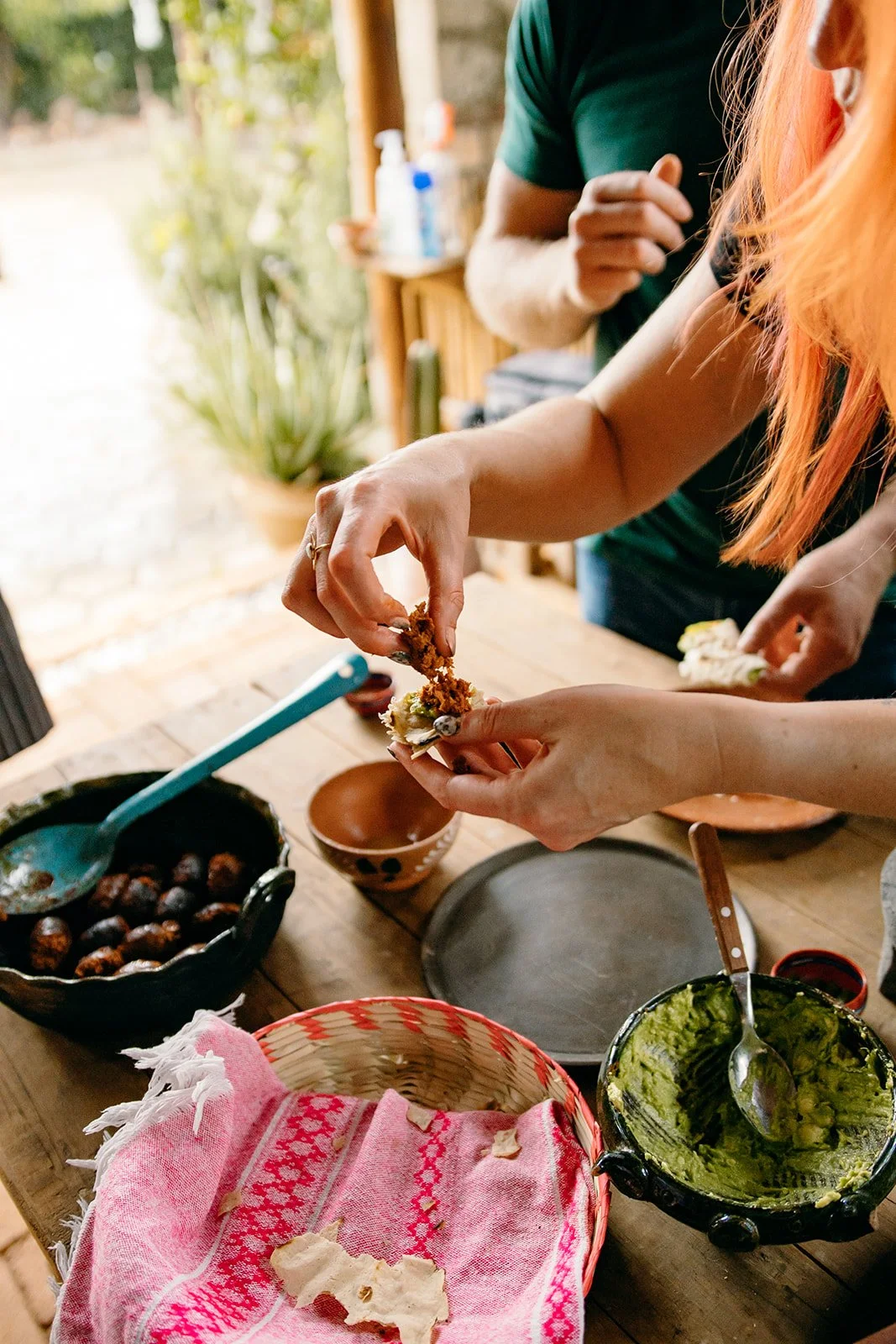Decolonizing Your Nutrition: Diversifying Your Food Choices
When you think of healthy food, what comes to mind? For most of us, it's usually something like egg whites and vegetables, or a big salad, or steamed broccoli and chicken and brown rice. But what about other food traditions and cultures? There are people all over the world who have lived healthy lives and probably never eaten what you just thought of as “healthy” foods.
Last year, I saw this video of Chef Jon Kung talking about eating noodles instead of a wrap for breakfast. And it really got me thinking about how we, as a society, have had our views of health and nutrition shaped. That conversation has largely been steered by upper and middle class white people, which is such a small segment of the world population.
I’ve talked before about my deep love of this book, Samin Nosrat’s Salt, Fat, Acid, Heat – both the book and the Netflix series. She breaks down cooking anything into those four elements. No matter where you’re from or what you eat, those are the four things that go into making food delicious.
As a nutrition coach, I often look at food itself as four distinct building blocks: carbs, fat, protein, and fiber. All food from all cultures are made of these elements. So why are we only including certain food cultures in our view of good nutrition? No matter where a recipe or meal comes from, it is always made of those building blocks. Just maybe in flavor or texture combinations we aren’t familiar with.
I was lucky to grow up in a family that encouraged trying new foods. If you’re looking to expand your horizons (or even just stop thinking of other food cultures as being unhealthy or less valuable) and don’t know where to start, here are a few ways to view foods that are new to you:
There’s no such thing as a food that is inherently gross. Seriously. Even that one you’re thinking of right now that you would never eat. You don’t have to eat it, but that doesn’t mean it’s inherently gross. And if you think that people from other countries or food traditions eat things that are gross, remember what a Rocky Mountain Oyster is. Eating “weird” things isn’t specialized to any one country or food culture.
It’s okay to have a negative reaction to a new food, but try to figure out what it was that you didn’t like. Instead of assigning it to the “gross” category, determine if it was the taste or texture or temperature that you didn’t like. The first time I ate sushi, I chewed it a couple of times and then had to spit it out (luckily, I was at home so I could do this without being too rude). My parents asked me what it was about the sushi that made me spit it out, and I determined that it was the texture of the nori (seaweed) wrapper that just didn’t hit me right. The next time we had sushi, my dad got one made with rice paper and another rolled inside out so the nori was less prominent. Since then, I’ve adapted to the texture of nori and I really love sushi. If I hadn’t been prompted to figure out what it was that I didn’t like the first time, I might never have made it past that initial judgment.
Try to find similarities between the foods you know and foods that are new to you. This can help when you’re trying something that feels really strange for one reason or another. Chances are that you’re familiar with the cooking technique in some other way. Whether it’s roasted, braised, in a stew or casserole, fermented, or fried: cooking techniques across the world are far more similar than they are different.
Remember that food is not just fuel. I think one of the most harmful beliefs we can pick up from influencers and the “wellness” industry is that food is something we use to support our bodies and nothing else.
Food is culture and connection and family and celebration. The more we embrace all the aspects of food, the healthier our relationship with food can become. And we can make more meaningful connections with others as we share food and our food traditions.
Food is culture and connection and family and celebration.
We are committed coaches who work with committed clients and love nothing more than helping our clients find a sustainable approach to nutrition that allows them to work towards their goals without white-knuckling their way through yo-yo diets. Learn more about our KLN team here!

